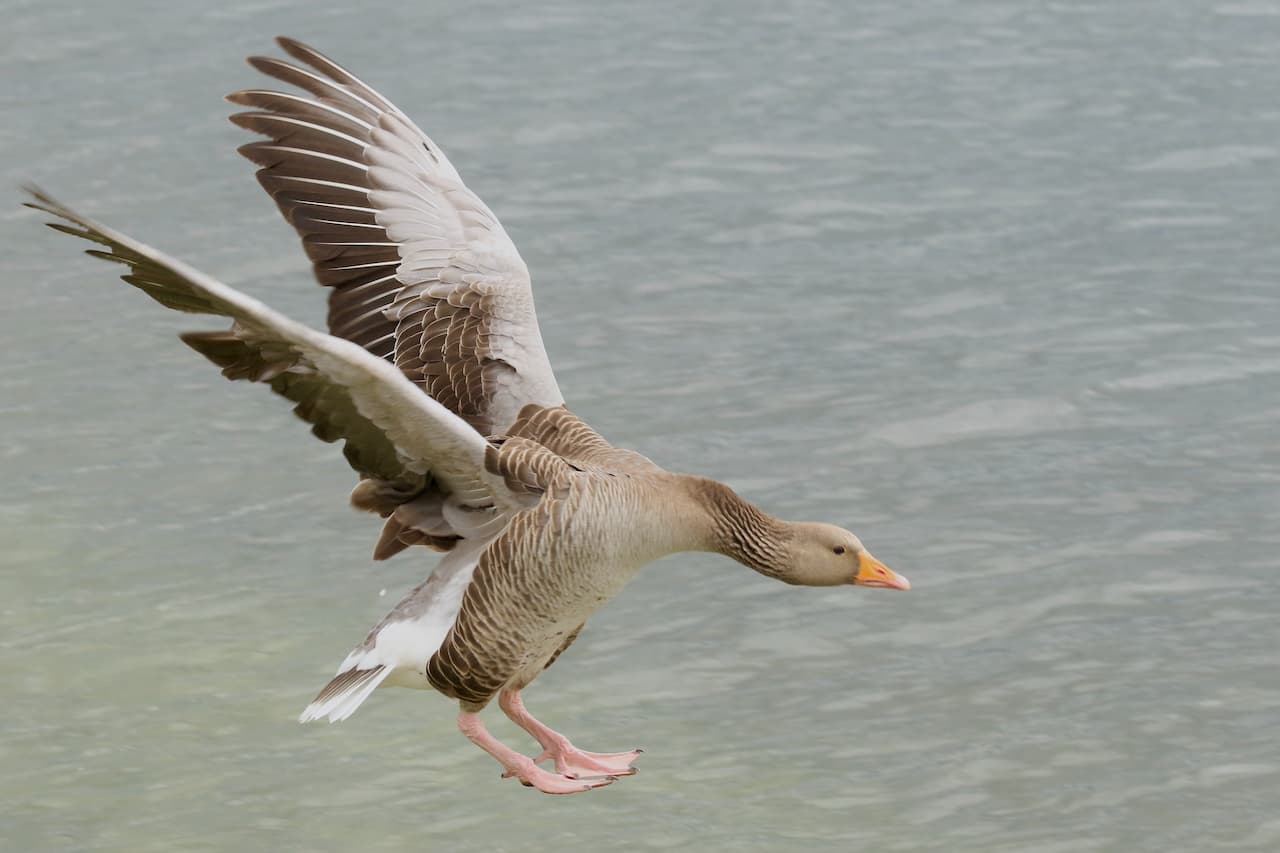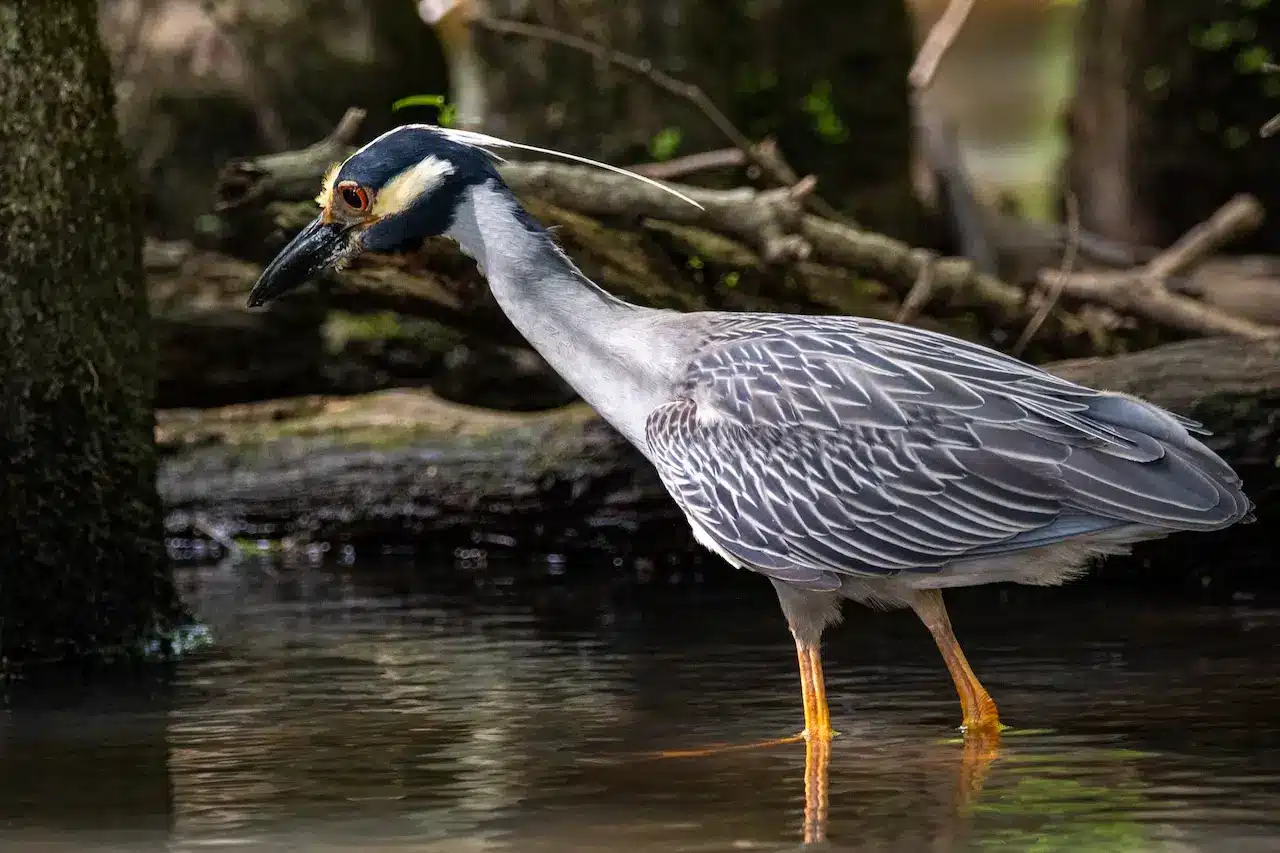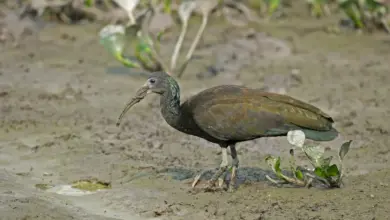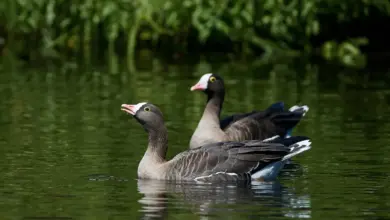The Chiloe Wigeon (Anas sibilatrix) is found in southern South America, on freshwater lakes, marshes, lagoons, and slow-flowing rivers.
Chiloe Wigeon breeds on the Falkland Islands, Argentina, Uruguay, and Chile; and migrates to southeastern Brazil for the winters.
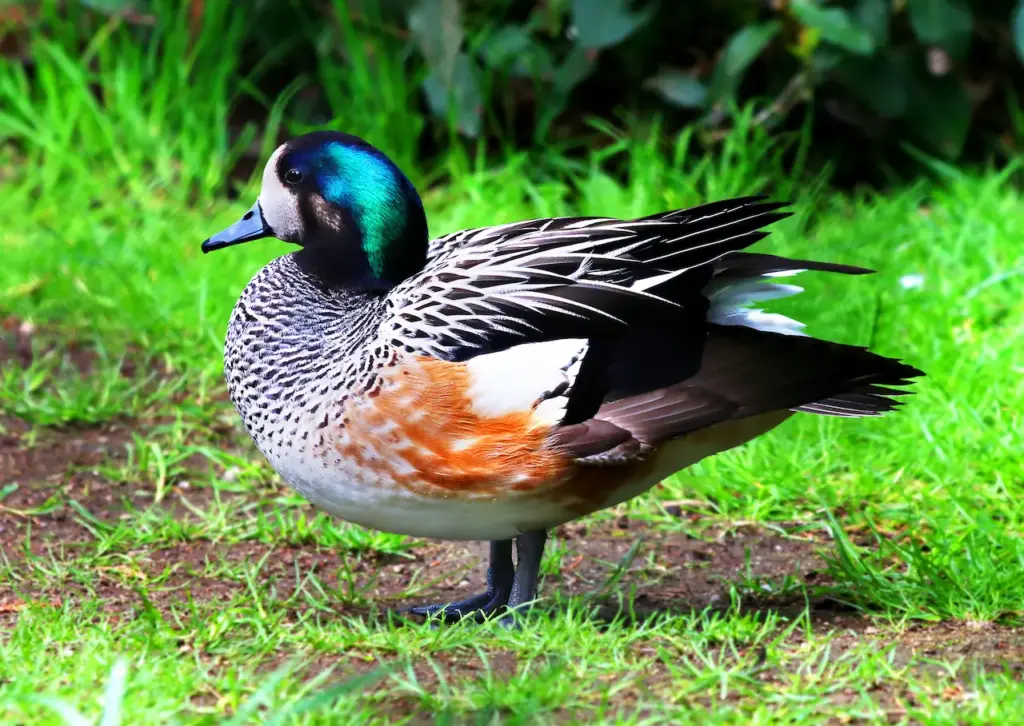
Description
They measure about 18 inches in length, with the male being slightly larger..
It has a metallic green head, and a grey bill with a black tip.
The chest is barred black and white and its sides are orange brown. It has white cheeks and a white forward and white on its wings.
Unlike other wigeons, males and females look alike.
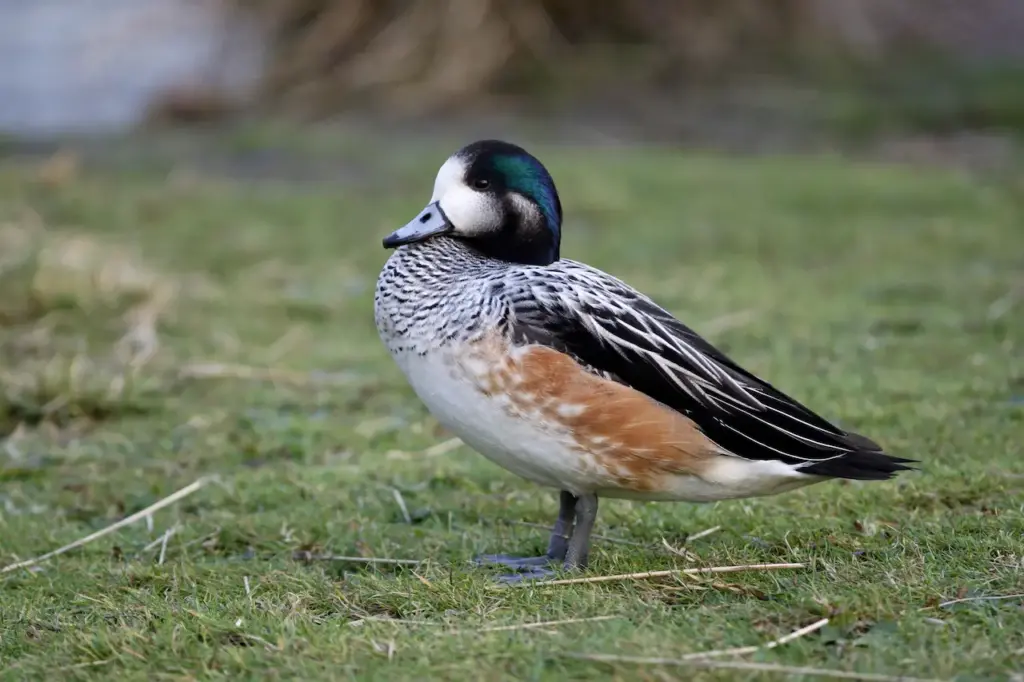
Breeding / Distribution
Pairs are monogamous. The female will lay between 6 and 10 eggs. Both the male and female raise the young.
Diet / Feeding:
Ducks generally feed on larvae and pupae often found under rocks, as well as aquatic animals, plant material, seeds, small fish, snails and crabs.
Feeding Ducks …
We all enjoy ducks and many of us offer them food to encourage them to come over and stay around – and it works! Who doesn’t like an easy meal!
However, the foods that we traditionally feed them at local ponds are utterly unsuitable for them and are likely to cause health problems down the road. Also, there may be local laws against feeding this species of bird – so it’s best to check on that rather than facing consequences at a later stage.
- Foods that can be fed to Ducks, Geese and Swans to survive cold winters and remain healthy when food is scarce in their environment.
Please note that feeding ducks and geese makes them dependent on humans for food, which can result in starvation and possibly death when those feedings stop. If you decide to feed them, please limit the quantity to make sure that they maintain their natural ability to forage for food themselves – providing, of course, that natural food sources are available.
Species Research by Sibylle Johnson
Please Note: The articles or images on this page are the sole property of the authors or photographers. Please contact them directly with respect to any copyright or licensing questions. Thank you.

